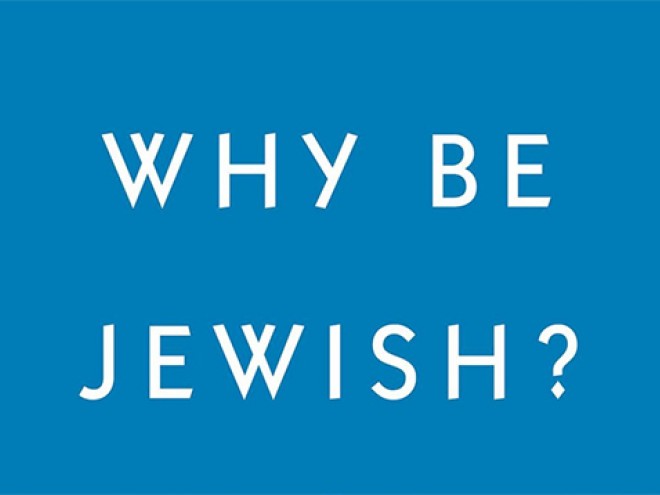Judy Batalion’s richly detailed homage to the Jewish women who resisted Nazism is now available in an edition for young readers. Batalion carefully explains her purpose: bringing to light the little-known stories of female freedom fighters whose unparalleled courage has been nearly lost to history. Although many of these women did not survive the Holocaust, and others were unable to accomplish their goal of fighting the Nazis and saving Jews, they approached their mission with a philosophy of defiance. Even if they ultimately failed, they would die with dignity, proving to the world that Jews, faced with virtually impossible odds, would try to defend themselves.
Each woman resistance fighter in the book has her own story, with several of them overlapping. Batalion offers important information and corrects misperceptions that young readers may bring to the subject. There was a range of activist groups representing Europe’s Jews both prior to and under Nazi occupation. The social Bund was important, but so were the Labor Zionists of Freedom and the Young Guard’s Marxism blended with Zionism. Some groups incorporated religious customs while others ignored them. Batalion’s thorough research, as well as her commitment to honor her subjects, illuminates Jewish history by accurately reporting the diverse nature of Jewish life in Eastern Europe.
Both in her introduction and epilogue, Batalion carefully discusses the framework for her study. Academics have contrasted resistancewith resilience; she focuses on those who actively fought against the Nazi regime. At the same time, she acknowledges that there were others who could only try to preserve their humanity in the face of degradation. Batalion does not imply that the women who actively resisted were innately superior to those who could not. She emphasizes that the women resisters were constantly playing a role. Some assumed the identity of Christian Poles and often capitalized on gender stereotypes to appear helpless or compliant. Many were initially involved in educational activities, promoting knowledge of Jewish history and working collectively on local kibbutzim to prepare for future migration to Palestine. As conditions worsened, the women’s mission transitioned to overt resistance. Some served as couriers, delivering documents. Others committed acts of sabotage to at least slow the Nazi assault. There were many who carried arms and killed those who were engaged in genocide against the Jewish people.
Books about Jewish resistance to the Nazis begin with the premise that most readers know the outcome: attempts to save any significant portion of the Jewish people will ultimately fail. Batalion meets the challenge of giving meaning to these women’s lives. When they were engaged in their struggle, almost all did initially believe that their persistence would lead to a positive outcome. Others came to terms with the truth, that they had nothing left to lose. After the war, those who survived confronted emotional challenges and the reluctance of even some Jews to hear about their experiences. With the distance of time, we have come to recognize that even those who did not survive succeeded, shattering the image of Jews as passive victims and proving that women could show unprecedented strength.
This highly recommended book includes a glossary, additional sources, and a list of all the women discussed.
Emily Schneider writes about literature, feminism, and culture for Tablet, The Forward, The Horn Book, and other publications, and writes about children’s books on her blog. She has a Ph.D. in Romance Languages and Literatures.
Discussion Questions
Courtesy of HarperCollins
- How significant was it that Renia was born into a middle-class Jewish family that prioritized education (3)? What advantages did this offer her?
- Why did the Kukiełka family decide to move to Chmielnik (8)? Why return to Jędrzejów to settle under German rule, instead of pressing forward to freedom (11)?
- Frumka and Zivia shifted their focus from helping only Freedom members to helping all Jews (17). Why was this important, and did it align with Freedom’s values?
- Why would the Nazis pit Jew against Jew by creating the “Judenrats” (18)? What did the Jewish people who were selected as Judenrat officials hope to achieve?
- Freedom and other organizations prioritized giving Warsaw ghetto residents access to education, sports opportunities, and theatrical performances (30). Was this an act of resistance? Why, or why not?
- Why were books so important to Freedom and similar organizations (31)? What was significant about the books and plays that Freedom started to print?
- What impact did the stories about the Nazis’ behavior have on Jewish people living in the Warsaw ghetto (38)? How did those stories lead to the establishment of the Jewish Fighting Organization?
- Renia met escapees from a nearby village who were spared by a Nazi soldier after their mother hid them around the house (42). What reason did the Nazi soldier give for sparing their lives?
- The Nazis rounded up the Jewish people of Będzin and tried to divide them into three lines, but the Jewish people fought back by creating chaos (60). What were some of the other things that the Jews of Będzin did to prevent the Nazis from taking people during the selection? Did their actions help save lives?
- There were several aspects to Kraków’s “Fighting Pioneers” pledge (67). What were some of the ways that it addressed the many types of resistance?
- How did the uprising at the Warsaw ghetto that was led by the Jewish Fighting Organization (75), challenge the Nazis’ perspective of the Jewish people? Why was the effort, which only lasted a short time, considered a success?
- Renia’s role as a kasharit, or courier, meant that she was responsible for carrying news to different cities (90). Why was Renia’s mission of witnessing and reporting the things that were happening to Jewish people so important?
- Like many of the women who fought in the resistance, Zivia felt a great deal of guilt for the comrades that she wasn’t able to save (109). How did emotional trauma play a role in Zivia’s actions during the war, and how did it impact the rest of her life?
- The couriers were able to smuggle weapons, bribe officers, and meet secret contacts (116). How did they use their gender to avoid suspicion?
- Chajka befriended German soldiers in Będzin and told them about the horrific things that were happening to the Jewish people (157). Why did she do that, and what impact did she hope to have?
- Bela and Lonka were able to reconnect after they were both captured and brought to the Pawiak prison (170). Why was it dangerous for Jewish women to identify each other when they were imprisoned in jails or at concentration camps?
- Gusta wrote her memoirs using scraps of toilet paper sewn together with thread (195). Was that an act of resistance? Why?
- Renia worried that Jewish people in Palestine wouldn’t be able to understand what European Jews went through in the Holocaust (210). Why was this a concern? How did the lack of understanding impact the way the couriers and resistance fighters assimilated into the new land?
- How were the women like Faye Schulman (218), who spoke publicly about their experiences during the war, still participating in the resistance even after the war was over?
- What were some of the reasons that it was hard for women like Zivia (220) to adjust to post-war life?
- What was the brigade of The Avengers hoping to achieve by continuing their work after the war (233)?





